Annual evaluation and SROI of the programme “Nessuno Escluso” to contrast social exclusion and educational poverty in Tuscany
Title Nessuno escluso – Supporting Communities in Tuscany
Location Florence (Le Piagge, Campi Bisenzio, Prato, Empoli)
Duration September 2017 – April 2022
Project Leader Oxfam Italia
Partners Cooperativa sociale Macramè, Cooperativa Il Piccolo Principe, Metropolis, Associazione Cieli Aperti, ASEV, Unione dei Comuni Empolese Valdelsa, Cooperativa Pane & Rose, Comune di Prato
Funding Burberry Foundation
Context
The area including Prato, Firenze, Campi Bisenzio and Empoli is home to some of the industrial excellence of the luxury textile and leather goods sector but is confronted with increasing levels of poverty, youth unemployment and immigration. After years of deep economic recession, many people, especially young people and those from migrant backgrounds, have found themselves caught in a vicious cycle of poverty, isolation, unemployment and low levels of education.
Industry leader Burberry – in line with its sustainability strategy that aims to generate a positive impact on the community life of the people it employs – thanks to the Burberry Foundation and Oxfam has promoted a social inclusion and educational poverty alleviation program aimed at citizens of Empoli, Campi Bisenzio, Prato and Florence.
The project had 3 components:
- Community Centers, with the aim of encouraging the participation of families in the life of the territory
- the Community Facilitators, to facilitate access to services for migrant and more vulnerable groups
- the Activities in Schools, to combat school dropout and educational poverty, through School Mentoring and Inclusive Teaching.
General objective
The M&E and Impact Evaluation Unit was involved to carry out an initial needs analysis (need assessment) and subsequently conduct the external evaluation of the program on an annual basis; to carry out an estimation of the social impact generated by the program on the ground through the SROI, Social Return on Investment, analysis methodology on two of the three project components-the community centers and community facilitators; and finally to evaluate the impact of school mentoring and inclusive education activities in the schools involved by applying the EHD, Evaluating Human Development, methodology.
Our contribution
On an annual basis, between January and April of 2019, 2020, 2021, and during the summer of 2022, ARCO conducted the external evaluation with a methodology based on the use of mixed qualitative and quantitative methods. Field visits to schools and community centers identified by the project allowed for participatory activities designed to engage project staff and beneficiaries in the evaluation.
Each annual evaluation report considers the three components of countering educational poverty on which the project was based-community centers, community facilitators, and actions in schools-identifies the various obstacles encountered during the implementation of activities and makes recommendations for subsequent years.
To estimate the social impact of the project, the M&E and Impact Evaluation Unit employed the SROI methodology, Social Return on Investment, because it allows for the construction of a narrative of the social change triggered through a participatory research process using mixed qualitative and quantitative methods.
SROI also allows organizations to improve their communication and accountability, but also to increase their transparency regarding the use of human and economic resources. In fact, the SROI index can also be interpreted as an index of efficiency in that it allows the measurement of an organization’s ability to transform invested resources into actions that generate a social return.
|
The application of the methodology resulted in an SROI of 3.47. This means that for every 1 euro invested, a social and economic return of 3.47 euro was generated. |
For the evaluation of school mentoring and inclusive teaching activities, ARCO employed the EHD methodology. This methodology based on the Capability Approach developed by Amartya Sen uses a set of multidimensional indicators related to the Sustainable Human Development paradigm. The main tool in the application of this theory are Structured Focus Group Discussions, employed by the research team to engage project beneficiaries who took part in the activities in the schools, to carry out impact estimation and attribution through the definition of a perceived counterfactual
Read more on our M&E and Impact Evaluation Unit
Related Projects
-

Monitoring Information System for project WATDEV on water management and sustainable development in East Africa
-

Research on knowledge, attitude, social norms and practice on reproductive health rights and gender-based violence in Narok county, in Kenya
-

Evaluation of the project that promotes food security and climate resilience in Mozambique
-
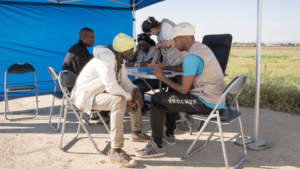
Evaluation of the project strengthening migrants’ right to health in Italy, Greece and Malta
-
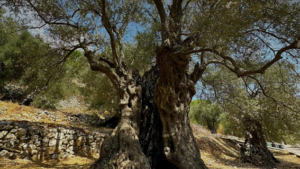
Final evaluation of the project that strengthens olive farmers’ resilience in Southern Lebanon
-
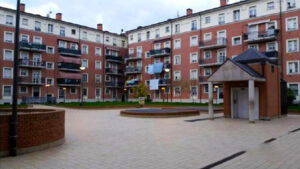
Social impact assessment of the Rapporti Corti project for socio-educational inclusion in the Navile district of Bologna
-

Evaluation of the Naseej project to stop gender-based violence in Iraq, Yemen, and Palestine
-
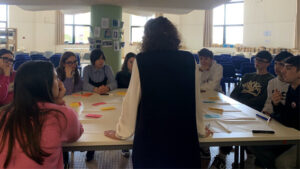
Evaluation of the project that promotes youth employment in Italy
-
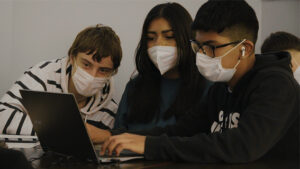
Final evaluation of the ‘5G Smart School’ project for innovative teaching in Italian schools
-
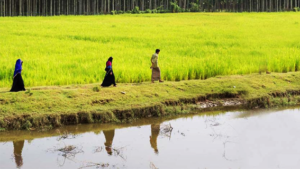
Evaluation of the project that fosters mainstreaming migration into international cooperation and development policies
-

Final evaluation of a project to contrast educational poverty in Albania
-
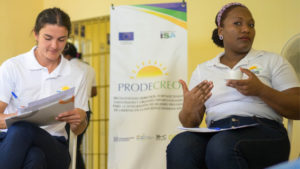
Evaluation of the project PRODECREO to promote the rights and socio-occupational reintegration of women deprived of their liberty in the Dominican Republic
-
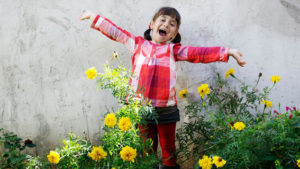
Final evaluation of the SOS Children’s Villages family strengthening project in Bosnia and Croatia
-

Evaluation of the project for the motor rehabilitation of oncological children in Turin
-
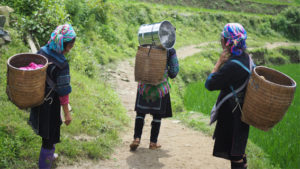
Evaluation of the project that aims to improve the health of the most vulnerable in Myanmar
-
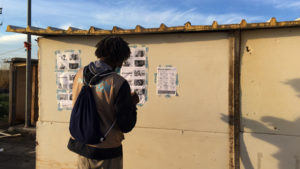
Final evaluation of the project that fosters proximity social-health services in the informal settlements of the Province of Foggia
-

Food Wave, Monitoring the project that promotes sustainable food consumption among young Europeans
-

Spazio Donna, evaluation of the projects to foster women empowerment and contrast gender-based violence
-

Evaluation of the projects “M’Interesso di Te” that tackle unaccompanied foreign minors’ integration
-
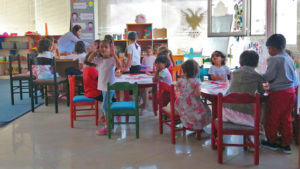
Evaluation of psycho-socio-sanitary interventions in response to the COVID-19 pandemic and the earthquake in Albania
-
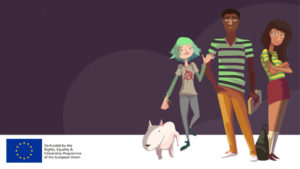
Final evaluation of the Youth For Love project to raise young people’s awareness of gender-based violence
-
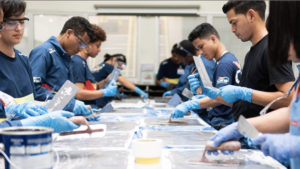
Multi-country mid-term evaluation of the YouthCan! programme, promoting the employability of vulnerable young people
-

Final evaluation of WEGO2 to support women economic empowerment contrasting intimate partner violence
-
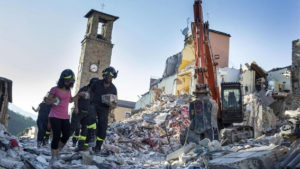
Action Research for the project Do.N.N.E against gender-based violence in Central Italy
-

Evaluation of the project “Mentors for Resilience” to contrast educational poverty
-
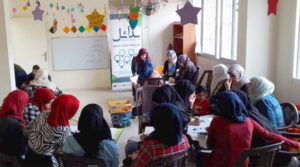
Outcome Harvesting of the project that aims to promote stability and social enterprise in Lebanon
-
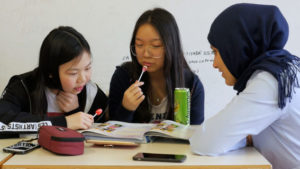
Annual evaluation and SROI of the programme “Nessuno Escluso” to contrast social exclusion and educational poverty in Tuscany
-
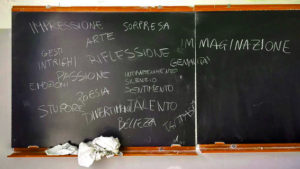
Evaluation of the project “Dreams and Needs” to contrast educational poverty in Italy
-
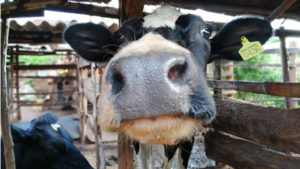
Mid-term evaluation of the project MilKy for the development of a sustainable dairy supply chain in Kenya
-

Final evaluation of Pe.R.Co.rrere: resilience of communities in Center Italy
-

Evaluation of the promotion campaign for Piave DOP cheese in Austria, Germany and Italy
-
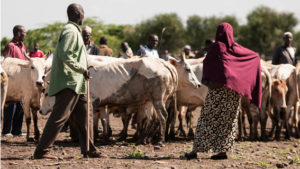
Mid-term & final evaluation of a project to strengthen resilience to climate shocks in Kenya
-
Evaluation of the promotion campaign for Italian specialities in Japan
-
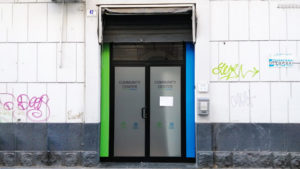
Community center, final evaluation of the social inclusion project
-
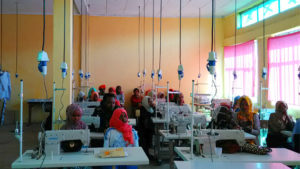
Mid-term evaluation of the project to contrast irregular migration in Ethiopia
-
Mid-term evaluation of the project for the conservation of Protected Areas in Albania
-

Social Impact Assessment of children’s protection programmes in Kyrgyzstan
-
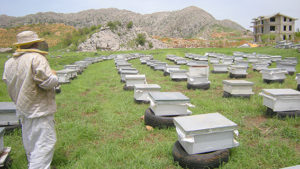
Monitoring&Evaluation of reintegration services for drug addicts and ex-addicts in Lebanon
-
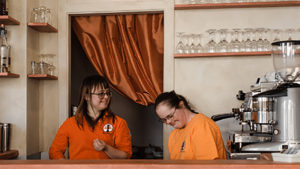
SROI Analysis, Albergo Etico social performance
-
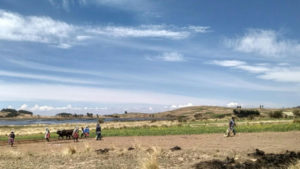
ECO.COM: strengthening local economic development in Bolivia
-

Improving the sustainability in the cherry supply chain in Bulgaria and Turkey
-
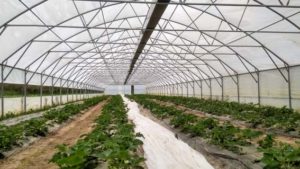
Evaluating sustainable agricultural supply chains in Bosnia Herzegovina and Albania
-
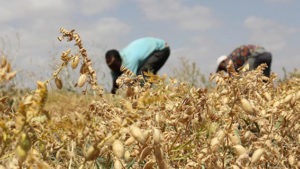
Impact evaluation of the creation of a durum wheat supply chain in Ethiopia
-
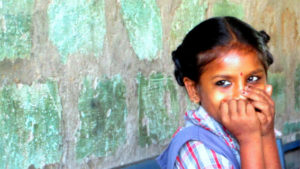
Impact evaluation of a Rehabilitation programme in India